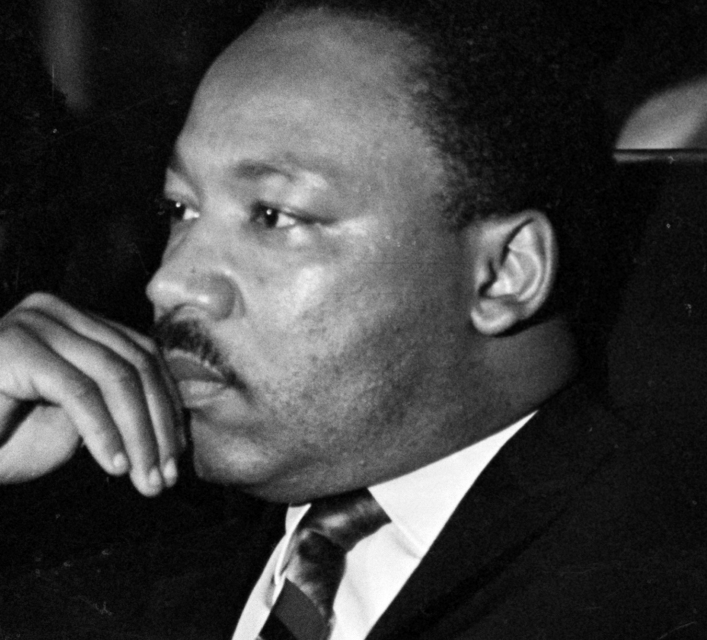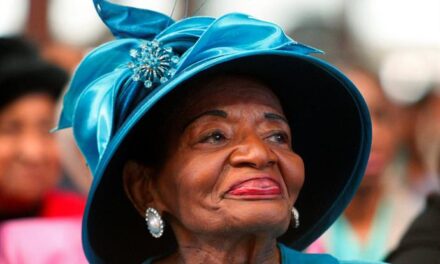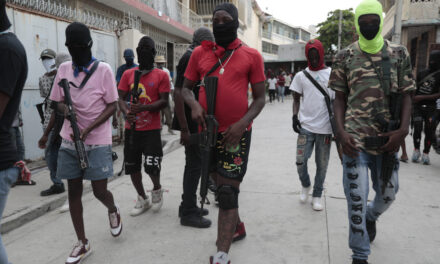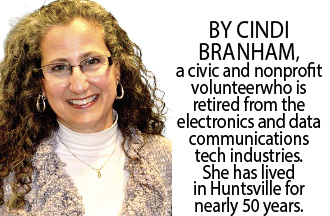
By Alexis Taylor
AFRO Managing Editor
Each year Americans across the country take time to recognize and honor the work of Dr. Martin Luther King Jr. in his birth month of January.
Young and old alike celebrate the valiant civil rights leader, the 1964 Nobel Peace Prize winner, the respected preacher, father and teacher. For decades teachings around King have focused on his efforts to stamp out Jim Crow and remove the stains of segregation from the fabric of America. And while his efforts to make change on the civil rights front certainly deserve attention, so too does the work King did in the latter part of his life.
Though King’s initiatives initially focused on racial equality, he was shot down just as he gained steam in tackling another giant: the scourge of poverty.
Now more than ever is the time to focus on King’s work in addressing economic equality. In a country where the cost of everything from food to gas continues to go up, poverty in America continues to be a top concern.
In 2024, the U.S. Census Bureau considered individuals making less than $15,060 to be in “poverty.” That number was $20, 440 for a family of two and $31,200 for a family of four.
In Sept. 2024 the U.S. Census Bureau reported that “there were 36.8 million people in poverty in 2023, not statistically different from 2022.” And the effects can be long-lasting.
According to the American Psychological Association, “approximately one in six kids, 16 percent of all children, live in families with incomes below the official poverty line. Those who are poor face challenges beyond a lack of resources. They also experience mental and physical issues at a much higher rate than those living above the poverty line.”
While the reasons for poverty are debatable, the fact is housing and basic needs to survive have skyrocketed and wages and good working conditions have not. In Baltimore, employees of the Department of Public Works are still recovering from the death of Timothy Cartwell, crushed to death while on the job as a sanitation worker. Today, sanitation workers in Baltimore are fighting a fight that looks eerily similar to what was happening in 1968, as King took on his final cause.

In the hours before his death, King was meeting with and working on behalf of sanitation workers. In fact, it was the reason why his assassination ultimately took place in Memphis, Tenn. on that fateful April day in 1968. After the Feb. 1 deaths of Echol Cole and Robert Walker, two workers crushed by a garbage truck while on duty, sanitation workers demanded better working conditions and better wages. It was right in line with King’s previous efforts to effect economic change. After all, his classic “I Have a Dream” speech was delivered in 1963 at the March on Washington for Jobs and Freedom…jobs and freedom.
King was very clear on where he stood when it came to poverty. Some of my favorite quotes from him on the subject are below:
“If peace means a willingness to be exploited economically, dominated politically, humiliated and segregated, I don’t want peace. If peace means being complacently adjusted to a deadening status quo, I don’t want peace. If peace means keeping my mouth shut in the midst of injustice and evil, I don’t want it. Peace is not simply the absence of conflict, but the existence of justice for all people.”
Dr. Martin Luther King Jr., March 18, 1956 “When Peace Becomes Obnoxious”
“There is nothing new about poverty. What is new is that we now have the techniques and the resources to get rid of poverty. The real question is whether we have the will.
Dr. Martin Luther King Jr., June 2, 1959 “Remaining Awake Through a Great Revolution.”
“I am now convinced that the simplest approach will prove to be the most effective – the solution to poverty is to abolish it directly by a now widely discussed matter: the guaranteed income.”
Dr. Martin Luther King Jr., 1967 book, “Where Do We Go From Here: Chaos Or Community?”
King gave his life trying to help others receive fair pay for their work. His final act included sounding the alarm for millions of families and generations to come with no opportunity to thrive in a way only possible once economic stability has been realized.
More and more we’re seeing workers demand fair wages, especially as the human workforce moves deeper into the shadow of automation empowered by artificial intelligence.
It’s encouraging to see leaders pick up where King left off in the fight against poverty. From Amazon workers and actors to longshoremen and even Starbucks employees, the past two years have seen several industries raise their voices for better wages and work conditions.
In 2025, I suggest you do too!
Let your legislators know that you support a higher minimum wage, pay equity initiatives and better insurance benefits, such as paid family leave. Donating food, clothes, money or time as a volunteer with anti-poverty organizations can also go a long way. Support your local unions, join your community meetings and apply for those grants to fund the great ideas that come about when residents come together.
There are many ways to continue King’s dream of equality, my hope is that after reading this edition of the AFRO, you feel inspired to make a difference in the best way you know how.
The post Decades later, King’s fight against poverty continues appeared first on AFRO American Newspapers.











